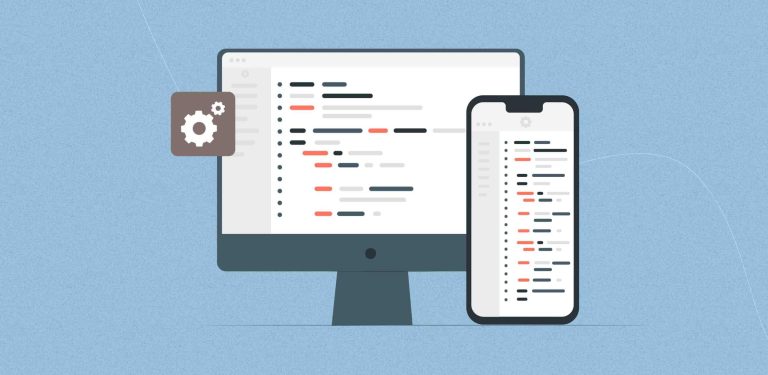

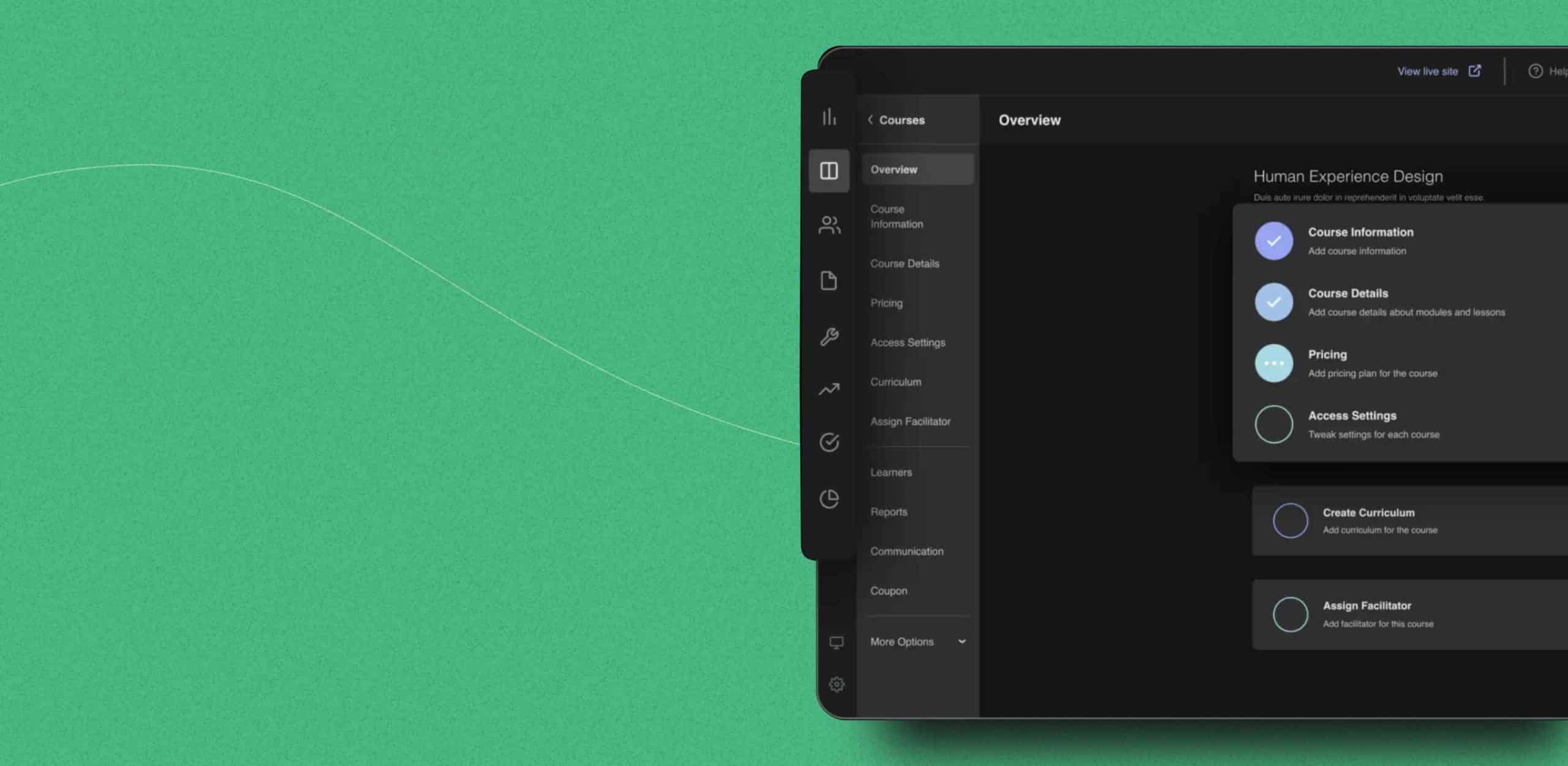
Custom LMS development has become a game-changer in today’s fast-paced, technology-driven world, where businesses and educational institutions are constantly seeking more effective ways to enhance training, streamline learning processes, and improve overall organizational performance. As organizations recognize that off-the-shelf LMS solutions often fall short of addressing their specific needs, custom LMS development has emerged as a critical solution.
By offering tailored functionalities, a personalized user experience, and seamless integration with existing systems, custom LMS solutions empower organizations to create learning environments that are flexible, scalable, and aligned with their unique goals. Whether it’s delivering specialized training programs, facilitating employee onboarding, or managing compliance in regulated industries, custom LMS development ensures that your learning management platform grows with your business, providing long-term value and a competitive edge.
In this comprehensive guide, we will explore the custom LMS development process, discuss its importance in 2024, and provide you with a step-by-step walkthrough of how you can go from concept to launch with a successful LMS that meets your organization’s specific requirements.
A Learning Management System (LMS) is a digital platform designed to manage, deliver, and track educational courses or training programs. LMS platforms are widely used by schools, universities, businesses, and other institutions to create a structured learning environment.
From monitoring student progress to offering training materials, LMS solutions streamline the entire learning process. Whether it’s formal education, employee training, or certification programs, an LMS enables instructors and administrators to create, distribute, and assess courses seamlessly.
LMS systems take on many of the administrative tasks associated with running training programs. Tasks such as enrollment, scheduling, reminder notifications, grading, and certification issuance can be automated, saving valuable time for administrators and reducing the chances of errors.
In an era where continuous learning and development are pivotal for both personal growth and organizational success, LMS platforms have revolutionized the way knowledge is shared and consumed. By simplifying the process of delivering, managing, and tracking learning, an LMS ensures that both businesses and educational institutions can meet the growing demands for upskilling, reskilling, and lifelong learning.
The flexibility, scalability, and efficiency provided by LMS platforms make them indispensable tools for businesses looking to maintain a competitive edge and educational institutions striving to offer enhanced learning experiences. Whether you are training employees in a corporate environment or managing a classroom of students, an LMS provides a powerful, unified platform that streamlines the entire learning journey.
The digital transformation across various industries has redefined how we approach learning and development, making Learning Management Systems (LMS) an essential tool. In an era where knowledge is continuously evolving, and organizations need to keep up with changing trends and regulations, the adoption of an LMS is more crucial than ever. Whether it’s for formal education, corporate training, or onboarding processes, an LMS offers organizations a structured and efficient way to manage, deliver, and track learning content.
Let’s break down the key reasons why an LMS is a must-have in today’s fast-paced, information-driven world:
Centralized Learning Hub
One of the greatest advantages of an LMS is its ability to act as a centralized hub for all learning resources.
Efficiency
An LMS optimizes and streamlines many of the administrative tasks that can otherwise be time-consuming. With the automation capabilities of an LMS, organizations can significantly reduce the manual workload involved in managing training programs.
Scalability
Another reason why an LMS is critical in today’s business landscape is its ability to grow with the organization.
Personalization
Learning is not one-size-fits-all. Every learner has unique needs, and an LMS offers a powerful solution for creating personalized learning experiences that cater to these diverse requirements.
Custom LMS development refers to the process of creating a bespoke Learning Management System that is specifically designed and developed to meet the unique needs of a business, educational institution, or industry. Unlike pre-built, off-the-shelf LMS solutions, which come with predefined features and configurations, a custom LMS offers tailored functionality, flexibility, and scalability. This means that the system is created with your specific objectives in mind, offering an experience that is fully customized to your requirements—whether it’s for corporate training, higher education, employee onboarding, or niche industry needs.
While off-the-shelf LMS platforms might work for some organizations, they often come with limitations that may hinder their ability to deliver specialized learning experiences. Pre-built systems are typically one-size-fits-all, forcing organizations to adapt their workflows, content, and learning strategies to fit the capabilities of the LMS, rather than the other way around. This can lead to inefficiencies, added costs, and a lack of user satisfaction. In contrast, custom LMS development gives you the opportunity to build a platform from the ground up that aligns with your organizational goals, offers unique functionality, and integrates seamlessly with your existing systems.
The decision to invest in a custom LMS solution often comes down to an organization’s need for specific features and capabilities that off-the-shelf options cannot provide. Below, we delve into the key reasons why businesses and institutions choose to develop a custom LMS:
Tailored Functionality
One of the most compelling reasons to invest in custom LMS development is the ability to define and create exactly the features you need. Off-the-shelf LMS platforms come with a fixed set of functionalities, many of which might be unnecessary for your use case, while lacking critical features that you need to achieve your learning objectives.
With custom LMS development, you are in complete control of the features that get built into the system. Whether you need advanced reporting tools, specialized assessment options, or unique content delivery methods, a custom solution allows for maximum flexibility.
Examples of tailored functionality include:
By offering features that are specifically suited to your users and organization, a custom LMS can deliver a superior learning experience that drives better outcomes.
Scalability
Another significant advantage of custom LMS development is its scalability. As your organization grows, so too does your learning and training needs. An off-the-shelf LMS may not be equipped to scale in the ways you need, limiting your ability to grow or forcing you to switch platforms down the line.
Custom LMS platforms are built with scalability in mind from the outset. This means that as your organization expands—whether in terms of user numbers, learning content, or functionality—the LMS can grow alongside you. Custom-built platforms can accommodate an increasing number of learners, new content modules, advanced features, and even support global operations with multilingual capabilities.
For instance, in a corporate setting, as new departments or branches are established, your custom LMS can be updated to support new learning tracks, certifications, and region-specific regulations, all without requiring a complete overhaul or migration to another system.
Branding
For many organizations, maintaining consistent branding across all platforms and user experiences is crucial. Off-the-shelf LMS platforms often provide limited options for branding, leaving you with an LMS that may not reflect your brand identity fully.
Custom LMS development offers full control over the look and feel of the platform, ensuring that it aligns perfectly with your company’s branding guidelines. Everything from the color scheme, typography, and logo placement to the user interface can be designed to match your brand’s aesthetic.
Branded learning environments help to build trust and familiarity with learners, whether they are employees, students, or customers. In addition to visual branding, custom LMS solutions can also include customized messaging and language that reflects your organization’s values and voice, creating a cohesive and branded learning experience that enhances engagement.
Security and Compliance
Security is a top priority for any organization, especially those that handle sensitive data or operate in regulated industries like healthcare, finance, or education. Off-the-shelf LMS solutions may not meet the specific security requirements your organization needs. Moreover, they may lack the necessary compliance features to adhere to industry regulations such as HIPAA (Health Insurance Portability and Accountability Act), GDPR (General Data Protection Regulation), or FERPA (Family Educational Rights and Privacy Act).
By opting for custom LMS development, you have the opportunity to build a platform with enhanced security protocols and compliance measures that are tailored to your industry. This could include:
Security breaches or non-compliance can have severe consequences, including legal penalties and loss of customer trust. By designing a custom LMS with security and compliance as a top priority, you mitigate these risks and create a safe, reliable platform for your learners.
Creating a custom Learning Management System (LMS) that adds tangible value to your organization requires a deep understanding of both the learning objectives and the technological features that can enhance the overall experience. By focusing on the right set of features, a custom LMS can be an indispensable tool for delivering, managing, and tracking training or educational content. Let’s delve into the essential features that make a custom LMS development project truly successful.
Responsive Design
In today’s digital age, users expect a seamless experience across multiple devices. Whether learners are using desktops, tablets, or smartphones, the LMS must be fully optimized for every screen size. A responsive design ensures that the user interface automatically adjusts to the screen dimensions, offering an intuitive and consistent experience regardless of the device.
Responsive LMS design is critical because:
A successful LMS should prioritize a fluid design that works across all platforms, enabling users to focus on learning without technical barriers.
User-Friendly Interface
The success of an LMS heavily depends on its usability. Whether you’re an administrator uploading content or a learner navigating through modules, the system needs to be intuitive and easy to navigate. A cluttered, complicated interface can frustrate users and reduce adoption rates. Therefore, ease of use is a non-negotiable aspect of any custom LMS.
Key aspects of a user-friendly interface include:
Ultimately, an intuitive design ensures that users spend less time figuring out the system and more time learning.
Personalized Learning Paths
One of the significant advantages of a custom LMS is the ability to deliver tailored learning experiences. With personalized learning paths, the LMS adapts to the needs, preferences, and performance of individual learners, making their journey more relevant and engaging. Personalized paths can involve customized recommendations based on user activity, learning history, or skill assessments.
Personalization enhances the learning experience by:
A personalized experience keeps users motivated and engaged, leading to better learning outcomes and higher course completion rates.
Gamification
Incorporating gamification into your LMS can significantly boost learner engagement and motivation. Gamification involves integrating game-like elements such as points, badges, leaderboards, and rewards into the learning process. This helps turn routine training modules into more interactive and enjoyable experiences.
The benefits of gamification include:
For instance, awarding badges or certificates upon course completion can encourage learners to aim for higher achievements, while progress bars can help them track their advancement in real-time. This form of positive reinforcement is particularly effective in corporate training and onboarding processes.
Multimedia Support
In today’s multimedia-rich world, learners expect more than just text-based materials. A successful custom LMS must support a wide range of multimedia content to cater to different learning styles and increase engagement. By incorporating various formats like videos, podcasts, PDFs, quizzes, and interactive elements, an LMS becomes more dynamic and capable of meeting diverse learning needs.
Benefits of multimedia support include:
The ability to integrate and manage different types of content not only enriches the learning experience but also helps learners retain and apply the information more effectively.
Tracking and Reporting
Detailed tracking and reporting capabilities are crucial for administrators, instructors, and managers who need to monitor learner progress and the effectiveness of their training programs. A custom LMS should offer comprehensive data analytics and reporting tools that provide insights into user behavior, course completion rates, assessment scores, and more.
Effective tracking and reporting help organizations:
Whether it’s monitoring individual learner progress or generating reports on an organizational scale, robust reporting tools are essential to the success of any LMS.
Integration Capabilities
A custom LMS should be able to integrate seamlessly with your existing systems and third-party applications. Whether you need to connect with a Customer Relationship Management (CRM) system, a Human Resource Management System (HRMS), or an e-commerce platform, the ability to integrate an LMS with other tools is critical to ensure a smooth and cohesive workflow.
Key integrations to consider include:
The ability to integrate with external platforms ensures the LMS is adaptable and can be leveraged to meet evolving business needs without disruption.
Content Management System (CMS)
A successful custom LMS should come with a built-in Content Management System (CMS) that makes it easy for administrators and instructors to create, manage, and distribute content. An intuitive CMS simplifies course creation, allowing non-technical users to upload and organize learning materials without needing programming skills.
Key benefits of an integrated CMS include:
An LMS with a robust CMS ensures that content management is hassle-free and that learning materials can be efficiently updated and distributed to learners.
Data Security
With the increasing reliance on online learning platforms, ensuring data security is critical—especially in industries like healthcare, finance, and government, where sensitive information is frequently handled. A custom LMS must prioritize the protection of both personal and corporate data through advanced security measures.
Essential security features include:
By building in these security features, a custom LMS not only ensures the safety of user data but also strengthens trust between the organization and its learners.
Investing in a custom LMS (Learning Management System) solution is a strategic decision that offers significant advantages over generic, off-the-shelf options. While the initial costs may seem higher, the long-term benefits far outweigh the upfront investment. Custom LMS solutions offer flexibility, personalization, and scalability, which can enhance the overall learning experience and align the platform closely with an organization’s unique goals and requirements. Below, we explore in detail how a custom LMS solution provides organizations with a competitive edge.
Initial Investment vs. Long-term ROI
At first glance, developing a custom LMS might seem more expensive compared to choosing a pre-built solution. However, over time, a custom LMS leads to significant cost savings due to the elimination of recurring licensing fees and restrictions that come with off-the-shelf platforms. Off-the-shelf LMS solutions often charge per-user or per-license fees, and as your organization scales, these costs can skyrocket. In contrast, a custom LMS is a one-time investment that belongs solely to your organization, with no hidden charges or long-term licensing costs.
No Payment for Unnecessary Features
Off-the-shelf LMS platforms typically offer a range of features that may not be relevant to your specific needs, meaning you end up paying for functionalities you never use. A custom LMS solution, however, is built with your organization’s exact requirements in mind, ensuring that you only pay for the features that add real value to your business. This tailored approach streamlines your training process and reduces unnecessary expenditure on features that do not contribute to your learning objectives.
Personalized Learning Experiences
One of the most significant advantages of a custom LMS is its ability to deliver personalized learning experiences that keep users engaged. A generic LMS may not account for the specific learning preferences of your employees or students, but a custom platform can be tailored to cater to diverse learning styles and preferences. Custom learning paths, content recommendations based on past performance, and adaptive learning modules can be built into the system, ensuring that users remain motivated and invested in their learning journey.
Gamification for Enhanced Motivation
Features like gamification—including badges, leaderboards, and point systems—help make learning more interactive and enjoyable. Gamification is particularly effective at boosting engagement by turning training into a rewarding experience, encouraging healthy competition among users, and improving knowledge retention. By integrating gamification elements specifically designed for your audience, a custom LMS keeps learners engaged and motivated throughout the training or educational process. This increased engagement directly impacts productivity and learning outcomes.
Collaboration and Social Learning
Custom LMS platforms can also integrate collaborative tools such as forums, chat functionalities, and group projects to foster social learning. When learners are able to communicate with peers, exchange ideas, and work collaboratively on projects, their overall engagement improves. Social learning helps break the monotony of individual learning while facilitating deeper understanding and long-term knowledge retention. These features can be customized based on your organization’s culture and learning dynamics.
Customizable Reporting Dashboards
Reporting is an essential feature in any LMS, as it helps track learner progress, completion rates, assessment results, and more. With a custom LMS, you can develop bespoke reporting dashboards that align perfectly with the metrics and KPIs important to your business. Whether you’re tracking compliance training, employee upskilling, or student performance, a custom LMS can deliver detailed insights that are specifically tailored to your goals.
Automated, Real-time Analytics
In a fast-paced environment, real-time data is essential for decision-making. A custom LMS can be equipped with real-time analytics that provide instant insights into how learners are progressing, which modules are most effective, and where there are gaps in learning. This enables organizations to make data-driven decisions, tweak training materials, and improve learning outcomes almost immediately. Off-the-shelf platforms may not offer this level of customizability, limiting your ability to extract valuable, actionable insights.
Compliance and Certifications
For industries that require specific certifications or compliance, such as healthcare, finance, or government, a custom LMS can be designed to track and report on these needs. Customized reports can show completion rates for mandatory compliance courses, certifications earned, and the overall effectiveness of these programs in maintaining industry standards. This level of granular reporting ensures that your organization remains compliant while fostering a culture of continuous learning and improvement.
Scalability for Growth
As businesses grow, their learning needs evolve. A custom LMS is designed with flexibility and scalability in mind, allowing it to grow alongside your organization. Whether you’re expanding into new markets, adding more employees, or introducing new products and services, a custom LMS can be easily adapted to meet your changing requirements. With an off-the-shelf solution, scalability often comes at a higher cost or requires purchasing additional licenses or modules. A custom LMS, however, is built for expansion from the outset, making it easier and more cost-effective to scale.
Integration with Existing Systems
One of the key benefits of a custom LMS is the ability to seamlessly integrate with other business-critical systems such as your CRM, HRMS, or ERP. This integration ensures smooth data flow across departments and systems, creating a unified learning environment. Whether you need to integrate the LMS with performance management tools for employee training or content management systems (CMS) for educational institutions, a custom LMS can be designed to meet your unique integration needs. This adaptability ensures that your training platform remains relevant and efficient as your business evolves.
Ongoing Updates and Customization
A custom LMS also allows you to continuously update and customize the platform to suit new requirements. Whether it’s adding new content types, enhancing user experiences, or improving security features, you have full control over the platform. This is especially beneficial in industries that undergo frequent changes, such as technology, healthcare, or finance, where learning platforms need to be updated regularly to keep up with new regulations, technologies, or market trends.
Consistent Branding Across the Platform
A custom LMS enables you to maintain consistent branding throughout the platform, which is not always possible with an off-the-shelf solution. Consistent use of logos, color schemes, typography, and messaging helps reinforce your brand identity and builds trust among users. This is particularly important for organizations delivering external training, such as franchisors, or educational institutions offering courses to external students. Branding consistency not only enhances the overall user experience but also fosters brand loyalty and recognition.
Tailored User Experience
In addition to branding, a custom LMS allows for the design of a tailored user experience that aligns with your organization’s values and training objectives. This includes everything from the user interface (UI) and navigation to content layout and delivery methods. A well-designed LMS with a user-centric approach boosts satisfaction, making learners feel more connected to the organization. Off-the-shelf LMS platforms often have rigid templates that may not align with your branding or learning structure, which can dilute your brand message.
As the learning and development landscape continues to evolve, the need for more personalized, adaptable, and scalable learning management systems (LMS) has never been greater. Businesses across industries are now seeking ways to enhance training, education, and skill development while ensuring seamless accessibility for employees and learners. In 2024, companies that invest in custom LMS development will be better equipped to address the critical challenges of today’s rapidly changing work environment.
Here’s why a custom LMS is not just a smart investment but a necessity for businesses in 2024:
Remote Learning and Hybrid Workforces
One of the most significant shifts in the workplace over the past few years has been the rise of remote and hybrid work models. As businesses adopt flexible work environments, the need for adaptable learning solutions has become paramount. A custom LMS allows organizations to provide training and education for employees regardless of their location, offering:
Unlike off-the-shelf solutions, a custom LMS can be specifically designed to accommodate remote and hybrid employees, delivering training that is both accessible and impactful. As remote work becomes a permanent fixture for many organizations, a custom LMS ensures that employees receive consistent, high-quality training, regardless of their geographical location.
Data-Driven Learning
In the age of big data, leveraging insights from learning activities is crucial for improving training outcomes. One of the key advantages of a custom LMS is its ability to harness data to inform decision-making and personalize learning experiences. By integrating advanced analytics tools, a custom LMS allows businesses to:
With data playing an increasingly important role in business strategy, companies that invest in a custom LMS can stay ahead of the curve by continuously refining their learning programs based on real-time feedback and analytics.
Enhanced Learner Experience
Modern learners, particularly millennials and Gen Z, expect more from their training programs than static text and videos. They crave interactive, engaging, and dynamic content that resonates with their personal learning preferences. A custom LMS allows organizations to deliver the kinds of personalized and immersive experiences that foster engagement and retention. Key features that contribute to an enhanced learner experience include:
With a custom LMS, organizations can provide a user-friendly, feature-rich platform that delivers a superior learning experience tailored to the needs of their workforce. This not only improves knowledge retention but also boosts overall learner satisfaction and productivity.
Compliance and Regulations
Different industries have distinct compliance requirements, especially in fields like healthcare, finance, and government. Off-the-shelf LMS platforms may not always meet the specific compliance and regulatory needs of each industry. For example:
A custom LMS can be developed with these specific compliance requirements in mind, ensuring that all necessary standards are met. Additionally, a custom LMS allows businesses to create automated compliance reports, monitor employee certifications, and manage regulatory audits more effectively. This can significantly reduce the risk of non-compliance and its associated legal and financial penalties.
Automation and AI
Automation is becoming an integral part of business operations across industries, and the learning and development sector is no exception. A custom LMS can harness the power of automation to streamline administrative tasks, personalize the learning journey, and enhance the overall user experience. Here’s how automation and AI are transforming learning management systems in 2024:
In 2024, AI and automation will become essential tools for businesses that want to deliver personalized, efficient, and scalable learning programs. By investing in a custom LMS, companies can seamlessly integrate these advanced technologies into their learning platforms, offering a cutting-edge learning experience.
Building a custom LMS from scratch involves several intricate stages, each requiring careful planning, coordination, and expertise. Developing a system tailored to meet your organization’s specific needs ensures a seamless learning experience for users while fulfilling administrative goals. Below is a comprehensive, step-by-step breakdown of the custom LMS development process.
Needs Analysis and Conceptualization
The first step in developing a custom LMS is to thoroughly understand the specific needs of your organization, learners, and administrators. This phase is critical because it sets the foundation for the entire project.
During this stage, the development team collaborates with stakeholders to draft an initial concept for the LMS. This may involve conducting workshops, surveys, and interviews with the end users to gain valuable insights.
Defining the Scope and Features
Once the needs are fully understood, the next step is defining the exact scope and features of your LMS. This step involves outlining every functionality and creating detailed wireframes that visualize how the system will work.
This phase ensures all stakeholders are on the same page regarding what the final product will look like and how it will function.
Choosing the Right Technology Stack
Choosing the right technology stack is a pivotal decision in custom LMS development. The technology stack is the combination of programming languages, frameworks, and databases that will be used to build the system. Your choice of tech stack will directly impact the scalability, performance, and security of the LMS.
The choice of technology stack will influence the LMS’s development timeline, future scalability, and the ease of future integrations or updates.
Design and Development
This is where the custom LMS takes shape. The design and development phase includes two critical components: the creation of user-friendly interfaces and the coding of the LMS functionalities.
This stage is highly collaborative and iterative, with constant communication between developers, designers, and stakeholders.
Testing and Quality Assurance
Once the LMS has been developed, it’s critical to undergo rigorous testing and quality assurance (QA) to ensure the platform is functioning as expected. No matter how well the LMS is designed and developed, bugs and usability issues are bound to appear, which is why QA is vital.
Deployment
After the LMS has passed all quality checks and testing phases, it’s time for deployment. At this stage, the LMS is moved from the development environment to the live server. Depending on your chosen hosting solution, deployment could be on a cloud-based platform or an on-premise server.
After deployment, a final round of testing is conducted to ensure that the system is functioning correctly in the live environment.
Training and Support
Even the most user-friendly LMS requires initial training for administrators and users to get accustomed to the system. Training sessions should focus on:
Ongoing technical support is essential for resolving issues, answering queries, and maintaining a high level of user satisfaction.
Ongoing Maintenance and Updates
An LMS is not a static system. As your organization’s needs evolve and as technology changes, regular updates and maintenance are required to keep the platform secure, efficient, and feature-rich.
Ongoing maintenance also involves server management, backup procedures, and troubleshooting any unforeseen issues that may arise during the platform’s lifecycle.
Developing a custom LMS can be highly rewarding, providing businesses with a platform tailored to their exact needs. However, the process comes with several challenges that can hinder development and implementation if not properly addressed. Below, we’ll dive into some of the most common custom LMS development challenges and offer actionable solutions to overcome them.
Budget Overruns
One of the most significant challenges during custom LMS development is exceeding the initial budget. Custom software projects often face unforeseen complexities that can lead to scope creep, delayed timelines, and escalating costs. These cost overruns can negatively impact the project, forcing businesses to either cut corners or halt development altogether.
How to Overcome Budget Overruns:
Complex Integrations
A significant advantage of a custom LMS solution is the ability to integrate it with other business systems like Customer Relationship Management (CRM) software, Human Resource Management Systems (HRMS), and Enterprise Resource Planning (ERP) systems. However, achieving seamless integration can be complex, especially if these systems use different technologies, data formats, or security protocols.
How to Overcome Integration Challenges:
User Adoption
Even the most feature-rich custom LMS can fail if users are unwilling or unable to adopt it. Low user adoption rates are often attributed to poor user experience (UX) design, lack of proper training, or failure to meet users’ needs. Ensuring that learners, administrators, and trainers find the platform intuitive and valuable is essential for its success.
How to Overcome User Adoption Challenges:
Security Concerns
Given that LMS platforms often handle sensitive personal information, such as user credentials, course progress, certifications, and in some cases, payment information, security is paramount. A data breach or cyberattack could compromise not only user privacy but also the integrity of your business.
How to Overcome Security Challenges:
As the global learning landscape shifts rapidly, the Learning Management System (LMS) industry is experiencing transformative changes driven by technology and evolving learner expectations. With more organizations adopting digital learning solutions, LMS platforms are becoming more advanced, adaptable, and learner-centric. In 2024, several key trends will define the direction of LMS development, pushing the boundaries of what’s possible in education and corporate training.
Let’s take a closer look at the major LMS trends shaping the future of learning in 2024:
Artificial Intelligence and Machine Learning
In 2024, the integration of Artificial Intelligence (AI) and Machine Learning (ML) is set to revolutionize LMS platforms. These technologies enhance personalization by creating individualized learning experiences for each user. AI-powered LMS systems can analyze user behavior, learning progress, and performance data to recommend tailored courses, assignments, and learning paths.
AI and ML are creating a future where LMS platforms are not just passive repositories of learning materials but intelligent systems that actively support and enhance the learner’s journey.
Mobile-First Learning
As mobile devices become the preferred medium for accessing digital content, mobile-first learning is emerging as a dominant trend in 2024. Learners want the flexibility to access content anywhere, anytime, making mobile optimization crucial for LMS platforms.
In 2024, mobile-first LMS solutions are becoming critical, especially in remote and hybrid work environments, as they cater to learners’ need for convenience and flexibility.
Social Learning
Social learning—the process of learning through collaboration and interaction with others—continues to rise in demand, driven by the need for more community-driven and experiential learning experiences. In 2024, LMS platforms are increasingly incorporating social learning features to foster communication, collaboration, and peer-to-peer knowledge sharing.
By fostering collaboration, communication, and shared learning experiences, social learning features empower learners to interact meaningfully, promoting better engagement and knowledge retention.
Microlearning
Microlearning—delivering content in short, easily digestible chunks—is a trend that is set to dominate LMS platforms in 2024. The demands of modern learners, combined with shorter attention spans, are driving this trend. Busy professionals and learners no longer have the time or patience for long, drawn-out courses.
In 2024, the emphasis on microlearning will continue to rise as learners seek to integrate training into their busy schedules without feeling overwhelmed by lengthy courses.
Gamification
Gamification—the use of game-like elements in non-gaming contexts—has been transforming learning for the past few years, and in 2024, it will become even more embedded in LMS platforms. The goal of gamification is to enhance learner motivation, engagement, and retention by incorporating fun, interactive elements into the learning process.
Gamification in LMS platforms is not just about fun—it’s about driving engagement, encouraging continuous learning, and ensuring that learners remain motivated to reach their goals.
Additional Emerging Trends in LMS for 2024
Apart from the major trends discussed above, several other emerging technologies and strategies will influence LMS platforms in 2024:
Artificial Reality (AR) and Virtual Reality (VR)
Immersive learning experiences through AR and VR are gaining momentum, especially in industries where hands-on practice is critical, such as healthcare and manufacturing. LMS platforms will increasingly incorporate AR/VR for virtual labs, simulations, and interactive tutorials.
Data-Driven Insights
Advanced reporting and data analytics will continue to evolve, offering educators and corporate trainers deeper insights into learner performance, engagement, and areas that need improvement. LMS platforms will provide more actionable data for customizing and optimizing the learning experience.
Integration with Other Business Systems
LMS platforms will increasingly integrate with HR systems, CRM platforms, and performance management tools. This seamless integration enables businesses to track employee development in line with performance goals and business outcomes.
Custom LMS development has become a game-changer for organizations across industries, providing them with the flexibility, scalability, and personalization needed to meet unique training and learning demands. In today’s fast-paced world, having a tailored LMS is essential for staying ahead of the competition, ensuring compliance, and driving employee or learner engagement. Let’s explore how custom LMS solutions are transforming different sectors, improving operational efficiency, and facilitating continuous learning.
Custom LMS Development for Healthcare
In the healthcare industry, maintaining up-to-date training is crucial due to the constantly evolving regulations, standards, and medical practices. A custom LMS is invaluable for healthcare organizations in several key areas:
For example, large healthcare networks can use a custom LMS to create role-based learning paths, ensuring that surgeons receive specific training on new surgical procedures, while nurses get updated on patient care protocols.
Custom LMS Development for Retail
In the retail industry, where customer experience is paramount, employee training plays a pivotal role. Custom LMS solutions are tailored to the unique needs of retail businesses and their workforce:
With features like gamification, retailers can motivate staff to complete training courses, improving knowledge retention and job performance.
Custom LMS Development for Corporate Sector
The corporate world is highly competitive, and organizations are constantly striving to enhance their workforce’s capabilities. Custom LMS development can address several learning needs in the corporate sector:
With a custom LMS, corporations can use data analytics to assess employee progress, training ROI, and identify skill gaps that need to be addressed, thus leading to a more efficient and capable workforce.
Custom LMS Development for Manufacturing
The manufacturing industry demands specialized training, particularly in terms of safety protocols, equipment handling, and regulatory compliance. A custom LMS offers significant benefits in this context:
Through video tutorials, virtual simulations, and assessments, manufacturing companies can significantly enhance employee competency, reduce the risk of errors, and boost productivity.
Custom LMS Development for Financial Services
In the financial services industry, accuracy, security, and compliance are non-negotiable. A custom LMS caters to the following needs in this highly regulated sector:
A well-designed custom LMS solution can also integrate with third-party financial management systems, allowing seamless workflows and real-time access to critical data.
Custom LMS Development for Education and eLearning
Perhaps the most obvious beneficiary of custom LMS development is the education sector itself. Educational institutions and eLearning platforms leverage custom LMS solutions to deliver engaging and effective learning experiences:
By incorporating interactive elements, social learning features, and gamified learning paths, educational institutions can foster engagement and improve retention rates for learners.
Custom LMS Development for Hospitality
The hospitality industry, known for its dynamic nature, requires continuous employee training to maintain high standards of service. A custom LMS offers specific benefits for hotels, restaurants, and travel agencies:
By implementing a custom LMS, the hospitality industry can improve customer satisfaction, streamline operations, and ensure employees receive consistent and up-to-date training.
Selecting the right custom LMS development company is one of the most critical decisions you’ll make in the process of creating a Learning Management System tailored to your organization’s needs. A well-designed, functional LMS can revolutionize your learning and development programs, while a poor choice of development partner can lead to costly delays, inefficient systems, and frustrating user experiences. To avoid these pitfalls, it’s essential to thoroughly vet your development partner by considering the following key factors:
Experience and Expertise
Experience and expertise in LMS development are fundamental when choosing a development partner. You want to work with a company that has a proven track record of delivering successful LMS projects across a variety of industries. Here’s why:
Customization Flexibility
Customization flexibility is one of the most important aspects when choosing a custom LMS development partner. Off-the-shelf LMS platforms often come with a standard set of features, many of which may not meet your specific needs. A custom solution allows you to:
Technology Stack
Choosing a partner with experience in the relevant technology stack is crucial for the technical success of your LMS. Here’s why:
Support and Maintenance
A well-designed LMS requires ongoing support and maintenance to ensure smooth operation and adaptation to new demands. Here’s what to look for in terms of support:
Client Testimonials and Reviews
Client testimonials and reviews are a powerful way to gauge the reliability and performance of a custom LMS development company. They provide insight into the company’s past work, client satisfaction, and how the company deals with challenges. Here’s how you can use testimonials and reviews to assess potential partners:
At Enfin Technologies, we understand that no two organizations are the same, and this is especially true when it comes to their learning and development needs. That’s why we specialize in creating custom LMS solutions tailored to meet the unique requirements of each business. With years of expertise in the field of elearning app development, we have successfully helped organizations across various industries design, build, and deploy scalable, secure, and feature-rich LMS platforms.
Our team of skilled developers, designers, and learning specialists work closely with you to create a custom LMS that is not only functional but also aligns with your strategic goals. Whether you need a cloud-based LMS for flexible access or an on-premise LMS for enhanced control and data security, we can build a system that integrates seamlessly with your existing technology infrastructure. We pride ourselves on delivering solutions that are future-proof, user-friendly, and designed to grow with your organization.
Why Choose Enfin for Your Custom LMS Development?
Here’s what sets Enfin Technologies apart as a trusted custom LMS development company:
Expertise Across Industries
Our team has extensive experience working with clients across multiple industries, including healthcare, education, corporate training, and retail. This broad experience allows us to understand the unique challenges and regulatory requirements of different sectors, ensuring that your custom LMS is built with industry-specific functionality in mind. For example, if you need a solution for the healthcare industry, we’ll ensure it complies with HIPAA or other necessary regulations. In education, we focus on features like adaptive learning, student assessments, and grading.
Tailor-Made Features for Your Needs
One size does not fit all when it comes to learning management systems. We work closely with you to define the custom features that will deliver real value to your learners and administrators. Whether you’re looking for gamification elements to increase learner engagement, custom analytics dashboards for tracking progress, or multi-language support for global learners, we make sure the platform meets your specific needs. Our custom solutions are designed with the end user in mind, ensuring a seamless and intuitive experience.
Scalable and Future-Proof Solutions
Your business is constantly evolving, and so should your LMS. At Enfin, we ensure that the systems we build are scalable, allowing your LMS to grow as your organization expands. Whether it’s increasing user capacity or adding new features, we design your LMS with future growth in mind. We also stay updated on the latest elearning trends and technologies, ensuring that your custom LMS remains competitive and adaptable to the ever-changing digital landscape.
Robust Security and Compliance
In today’s data-sensitive world, security is a top priority. Whether your custom LMS handles sensitive healthcare data or proprietary corporate training materials, we incorporate top-tier security features to protect your platform. These include encryption, multi-factor authentication, role-based access controls, and regular security audits. If your organization is in a regulated industry, we ensure your LMS is compliant with all relevant standards, such as GDPR, HIPAA, or other industry-specific regulations.
Seamless Integration with Existing Systems
We understand that your business might already use other software platforms like CRM systems, HR software, or e-commerce tools. Our custom LMS development includes the ability to integrate seamlessly with these existing systems, ensuring a smooth flow of data and operations. Whether you need integration with a single sign-on (SSO) system, payment gateways, or analytics platforms, our team can build these integrations into your custom LMS to enhance functionality and improve workflow.
User-Centric Design
The success of an LMS depends heavily on how well it caters to its users. At Enfin Technologies, we prioritize user experience, making sure that your custom LMS is easy to navigate, responsive across all devices, and accessible to all types of learners. Our UX/UI designers work to create a clean, intuitive interface that enhances user engagement and reduces the learning curve for both administrators and learners. Whether your LMS will be used by employees, students, or external clients, we focus on making it simple, engaging, and effective.
End-to-End Development and Support
From initial conceptualization and design to development, deployment, and ongoing support, Enfin Technologies provides an end-to-end custom LMS development service. We take care of every step of the process, ensuring a smooth journey from idea to implementation. But our relationship doesn’t end at launch—we offer continuous support and maintenance to address any technical issues, updates, or feature enhancements as your needs evolve.
The demand for custom LMS development is only going to grow as businesses recognize the need for tailored, scalable, and adaptable learning platforms. Investing in a custom LMS allows you to provide personalized learning experiences, ensure compliance, and boost learner engagement. By following a structured development process and partnering with the right custom LMS development company, your organization can gain a significant competitive advantage. Reach out to Enfin today to explore how we can help bring your LMS vision to life!
Do you have additional questions?
A custom LMS (Learning Management System) is a platform specifically tailored to meet the unique needs and goals of an organization, unlike off-the-shelf solutions. Custom LMS development allows for personalized features, branding, integrations, and workflows to create a more efficient and user-friendly learning experience.
An off-the-shelf LMS comes with pre-built features that may not fully meet an organization’s needs, while a custom LMS is developed from scratch based on specific requirements. A custom LMS is scalable, adaptable, and integrates seamlessly with your existing systems, providing features that are unique to your business or educational institution.
The key benefits of custom LMS development include:
A custom LMS is beneficial across multiple industries, including:
Almost any industry that requires structured learning, training, or development programs can benefit from a custom LMS solution.
The timeline for custom LMS development varies depending on the complexity of the project, the number of features, and integration requirements. On average, a custom LMS can take anywhere from three to six months for full development, including planning, design, development, testing, and deployment. However, this may vary based on your specific needs.
Key features of a successful custom LMS include:
Yes, one of the major advantages of a custom LMS is its ability to integrate with your existing systems such as CRM, ERP, or HRMS. Integration allows seamless data flow, enabling easier tracking of learner progress and management of user information across platforms.
Absolutely. A custom LMS is designed with enhanced security measures like data encryption, secure authentication, and regular security audits. If your business operates in industries that require compliance with specific regulations (e.g., HIPAA, GDPR), a custom LMS can be developed to meet these security standards.
The cost of custom LMS development depends on factors such as the number of features, complexity, technology stack, integration needs, and whether it is cloud-based or on-premise. While custom LMS solutions may have a higher initial investment than off-the-shelf options, they are more cost-effective in the long run as you don’t have to pay for unused features or ongoing licensing fees.
Choosing the right custom LMS development company is critical for the success of your project. Consider the following factors:
At Enfin Technologies, we offer all of the above, ensuring a seamless and successful custom LMS development experience.

Founder, Concierge Care Plus

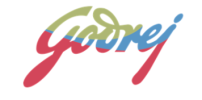


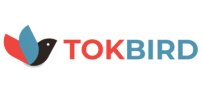
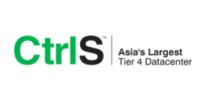
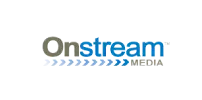

Founder, Concierge Care Plus